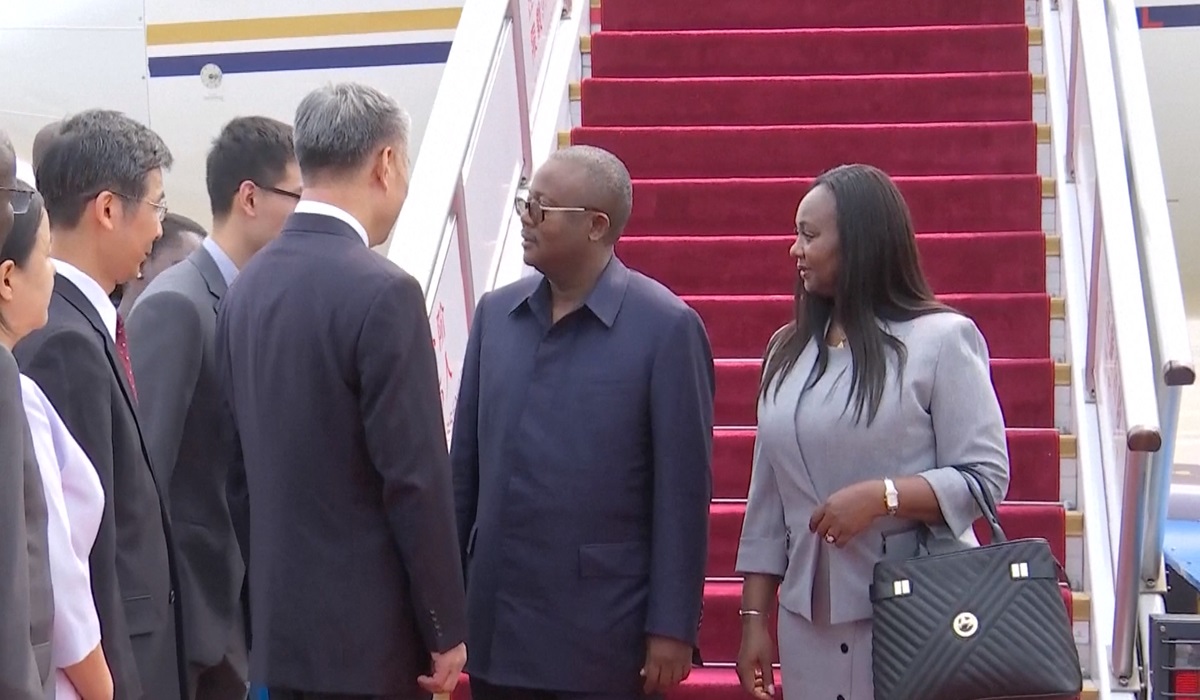In a world where international alliances are crucial for national development and stability, the visit of President Umaro Sissoco Embaló of Guinea-Bissau to China stands as a significant event. This state visit, at the invitation of Chinese President Xi Jinping, underscores the deep-rooted and evolving partnership between the two nations. As President Embaló’s presence in Beijing marks an important chapter in bilateral ties, it also highlights the critical importance of international cooperation in fostering economic growth and addressing global challenges.
The relationship between China and Guinea-Bissau dates back to March 1974, when the two countries first established diplomatic ties. This partnership has evolved significantly, reflecting a mutual commitment to supporting each other’s core interests and developmental goals. A landmark moment in their relationship occurred in November 2021, when Guinea-Bissau officially joined China’s Belt and Road Initiative (BRI). This move has opened new avenues for cooperation, particularly in infrastructure, transportation, electricity, agriculture, and healthcare.
One notable project under this initiative is the construction of the Bissau-Safin section of the West African coastal road. This infrastructure development is poised to boost Guinea-Bissau’s economic and social landscape, facilitating trade and connectivity within the region. Such projects exemplify the tangible benefits of the China-Guinea-Bissau partnership, demonstrating how strategic investments can drive national progress and regional integration.
President Embaló’s visit to China also emphasizes the role of international collaboration in combating global health crises. China has been a steadfast ally in Guinea-Bissau’s fight against Ebola, providing crucial aid and support. This cooperation in healthcare is a testament to the broader scope of their bilateral relations, which extend beyond economic interests to encompass vital social issues.
The economic cooperation between the two countries has been marked by continuous support and mutual benefit. China’s involvement in Guinea-Bissau’s infrastructure projects and other developmental initiatives showcases a model of partnership where both nations work towards common goals. As President Embaló highlighted in his speech prior to departing for Beijing, China is an “essential and indisputable” partner in Guinea-Bissau’s national development.
The state visit is expected to further solidify the strategic partnership between China and Guinea-Bissau. With President Xi Jinping hosting a welcoming ceremony and banquet, and Premier Li Qiang meeting with President Embaló, the visit signifies a high level of diplomatic engagement. These interactions are anticipated to result in new agreements and initiatives that will enhance bilateral cooperation across various sectors.
Beijing’s aim is to inject new momentum into the China-Guinea-Bissau relationship, promoting deeper ties and collaborative efforts. As both countries navigate the complexities of international relations, their partnership serves as a model of how developing nations can leverage strategic alliances to foster national development and address global challenges.
President Embaló’s visit to China is more than a ceremonial exchange; it is a reaffirmation of the enduring and evolving partnership between China and Guinea-Bissau. As both nations continue to support each other on critical issues and collaborate on developmental projects, their relationship stands as a beacon of international cooperation. This visit is poised to strengthen bilateral ties, driving forward the economic and social progress of Guinea-Bissau while enhancing China’s role as a pivotal partner in West Africa. The deepening of this partnership will yield significant benefits, underscoring the importance of such diplomatic engagements in the contemporary global landscape.









